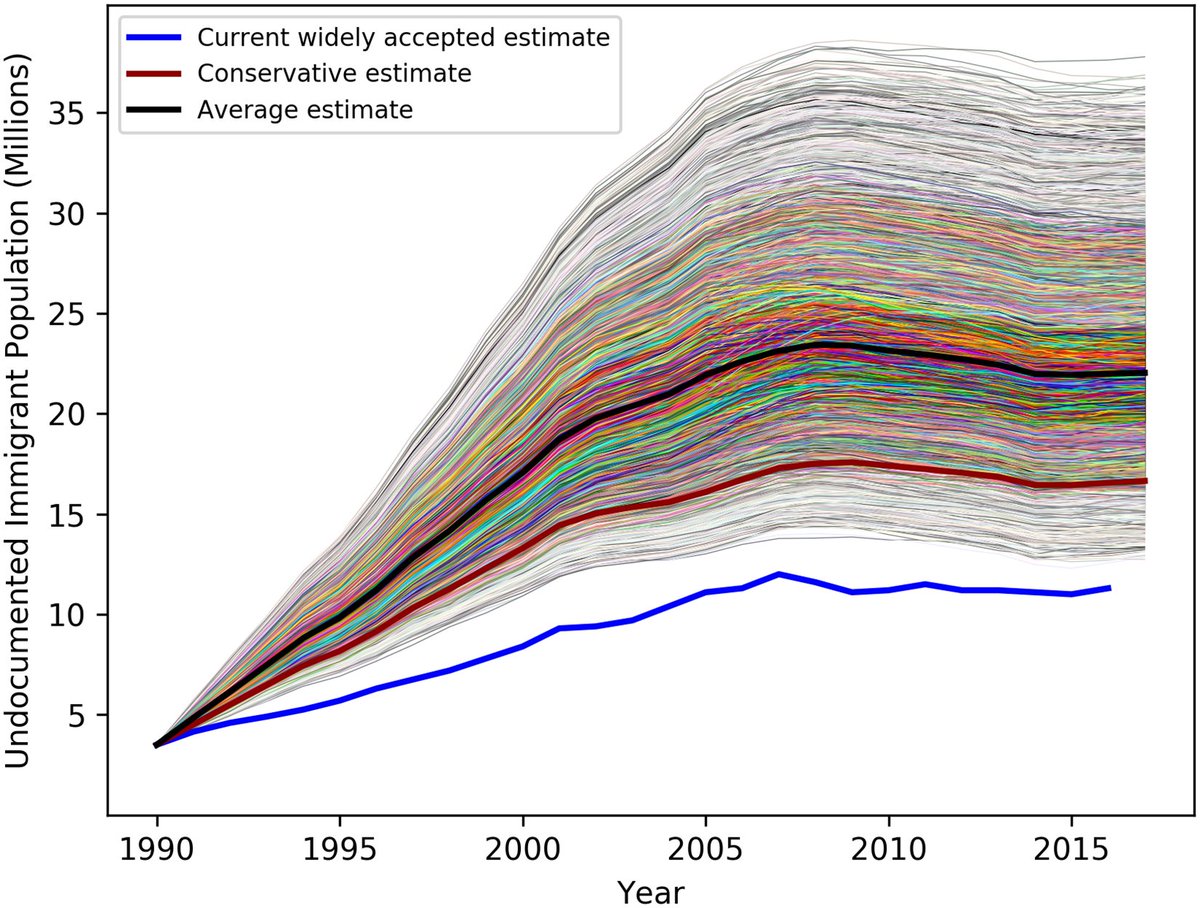Illegal immigration continues to go in reverse.
The number of unauthorized immigrants in the U.S. fell in 2016, by about 300,000.
pewhispanic.org/2018/11/27/u-s…
The number of unauthorized immigrants in the U.S. fell in 2016, by about 300,000.
pewhispanic.org/2018/11/27/u-s…
From 2007 to 2016, the number of unauthorized immigrants from Mexico, South America, the Caribbean, Africa, Europe and Canada fell.
The number from Central America increased, but only by about 300,000 total (over 9 years).
The number from Central America increased, but only by about 300,000 total (over 9 years).

These new numbers prove, yet again, that the Caravan, the families Trump separated, etc. are the tiny last gasp of a phenomenon that mostly ended over a decade ago.
(end)
(end)
More data, more facts!
Here's a list of states where the unauthorized immigrant population changed, and how much it changed by, over the last decade.
Here's a list of states where the unauthorized immigrant population changed, and how much it changed by, over the last decade.

Some people have tried to estimate the number of unauthorized immigrants that govt. surveys miss, based on entry/exit numbers.
They find a higher total population of unauthorized immigrants, but the same decline - or a BIGGER decline - starting in 2007.
journals.plos.org/plosone/articl…
They find a higher total population of unauthorized immigrants, but the same decline - or a BIGGER decline - starting in 2007.
journals.plos.org/plosone/articl…

Deportations peaked in 2013 under Obama, who focused on deporting criminals and recent entrants rather than law-abiding long-term residents. 

Unauthorized immigrants are a little less than a quarter of the foreign-born population. They are about 3.3 percent of the entire United States population. 

The collapse and reversal of illegal immigration is due mainly to Mexico, though the trend holds for almost all sending countries (Mexico was just by far the biggest).
It's now basically down to just Honduras/Guatemala/El Salvador.
It's now basically down to just Honduras/Guatemala/El Salvador.

The collapse and reversal of illegal immigration seems to have been triggered by the bursting of the housing bubble in 2007. BUT, thanks to low Mexican fertility and higher Mexican per capita GDP, the trend held even as the economy recovered.
Obama's vigorous border enforcement, with record deportations, family detention (vox.com/2018/6/21/1748… …). and use of force at the border (newsweek.com/obama-administ… …), might also have been a factor in stopping illegal immigration from rebounding after the recession ended.
Looking at the data and the history, I cannot reasonably conclude that illegal immigration should be an important issue in the United States today.
It seems to me to be a nothingburger. A vehicle for posturing, rhetoric, and status politics, not a real policy challenge.
It seems to me to be a nothingburger. A vehicle for posturing, rhetoric, and status politics, not a real policy challenge.
Illegal immigration now seems to me to be nothing more than a symbolic flashpoint in the much larger battle over race and belonging in America - over who gets to be a "real American".
That is a very important battle. But it's not really about illegal immigration.
(end)
That is a very important battle. But it's not really about illegal immigration.
(end)
• • •
Missing some Tweet in this thread? You can try to
force a refresh










